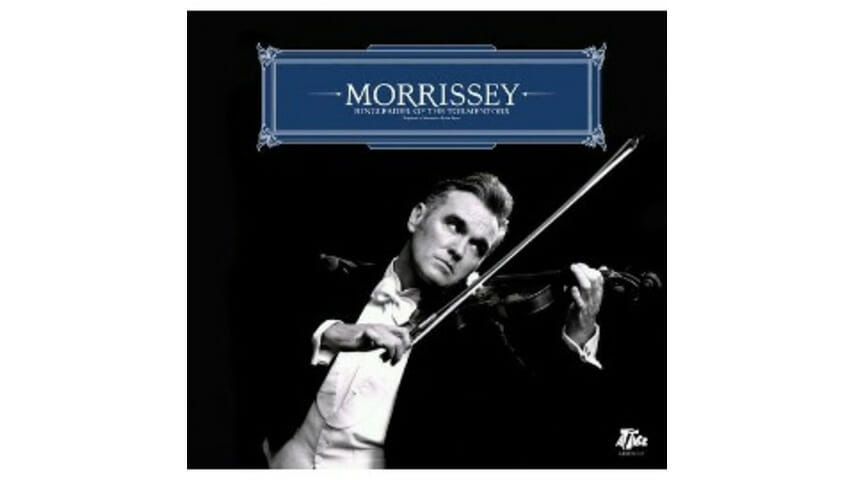Morrissey – Ringleader of the Tormentors

Dressed To Overkill: Long-awaited followup to career milestone sinks to middle
On paper there was every reason to believe that Ringleader of the Tormentors would be an epochal album. On the heels of the dazzling You Are the Quarry, Morrissey’s triumphant return to the stage and spotlight, he showed signs of a latter-day flowering. Taut and strutting, Quarry had ample doses of Moz’s clever-devil black humor, but on songs like “First of the Gang to Die,” they were delivered with such a sly and ebullient smirk that it no longer seemed like the emotionally defensive maneuver of a tortured melodramatist. Lurking through the songs and the surprisingly non-evasive interviews was a hint that perhaps the man so stereotypically associated with all things teenage-morose was growing ever more comfortable in his own shadow, myth and skin. Quarry introduced Morrissey’s fervent public to his new and endearing incarnation as an elder statesman, a one-man Rat Pack for the post-post-punk set.
-

-

-

-

-

-

-

-

-

-

-

-

-

-

-

-

-

-

-

-

-

-

-

-

-

-

-

-

-

-

-

-

-

-

-

-

-

-

-

-








































